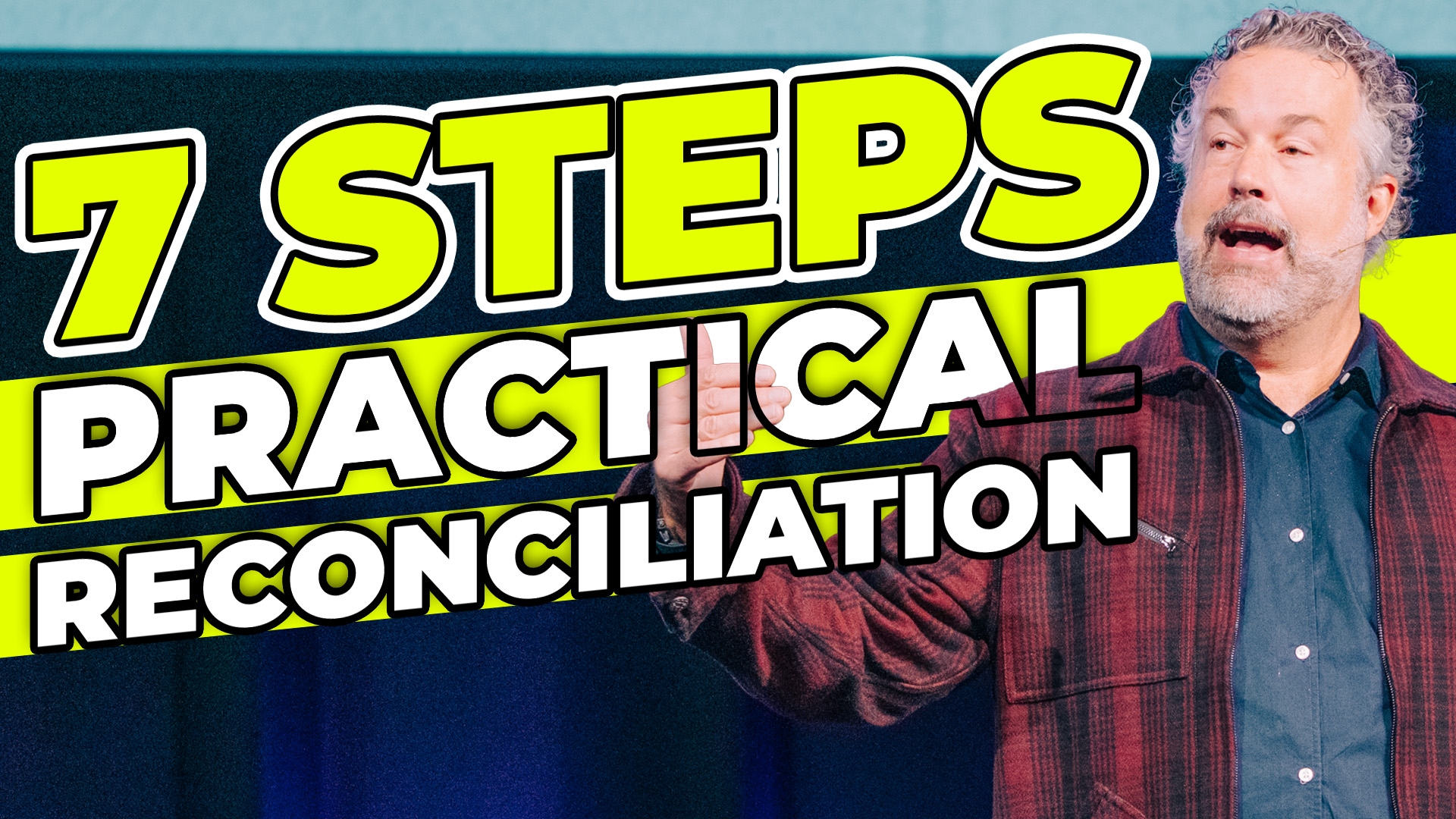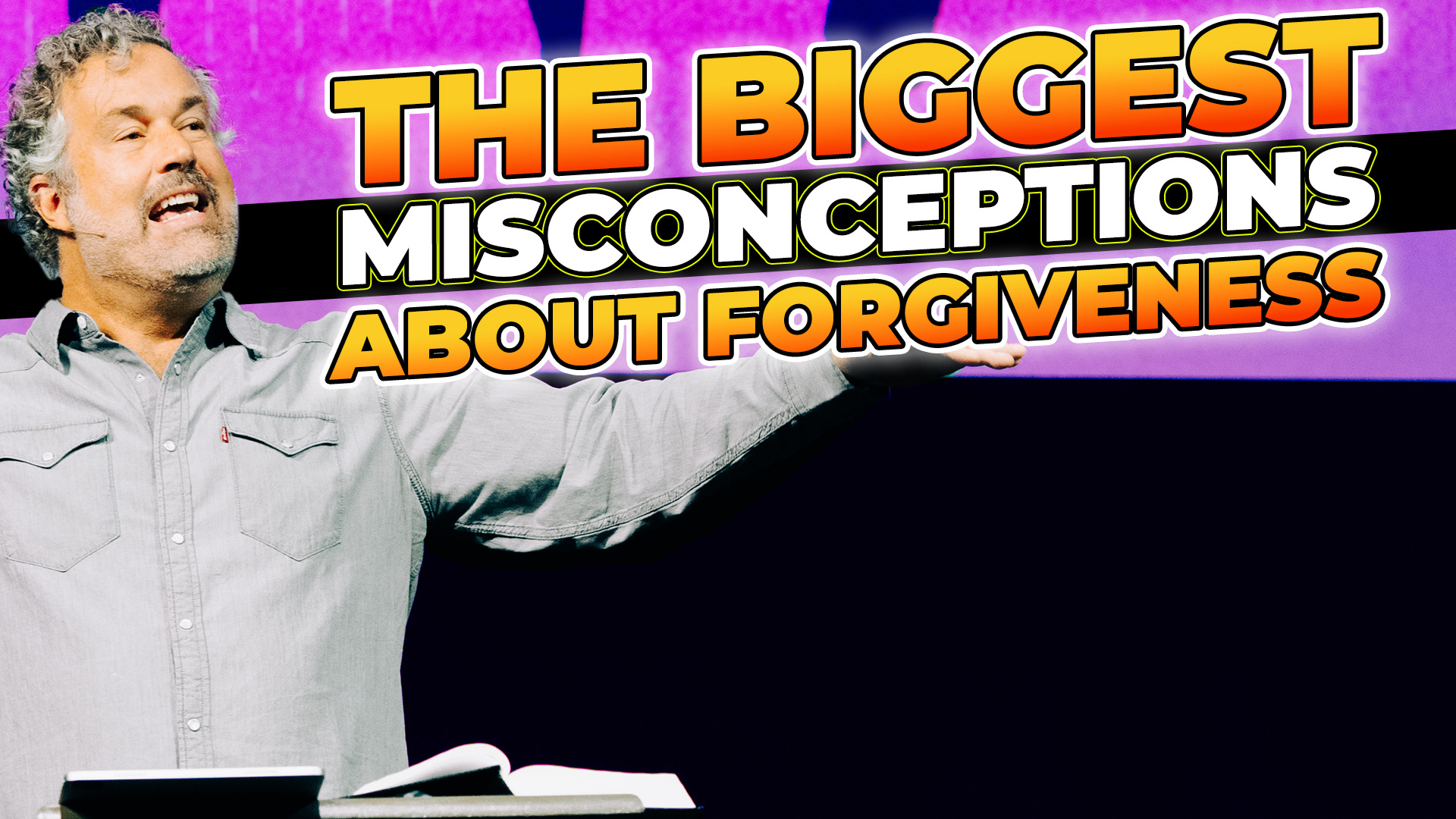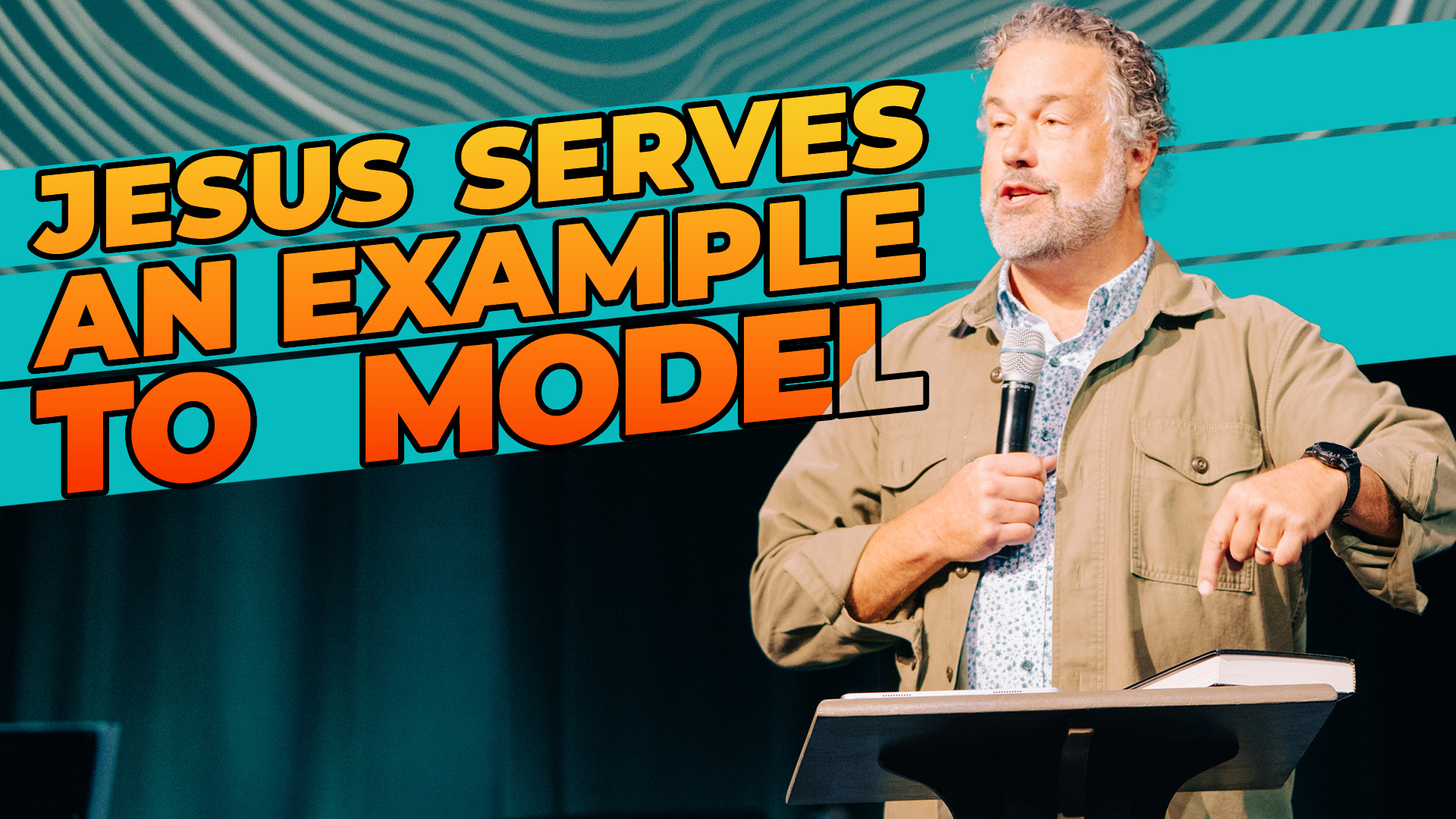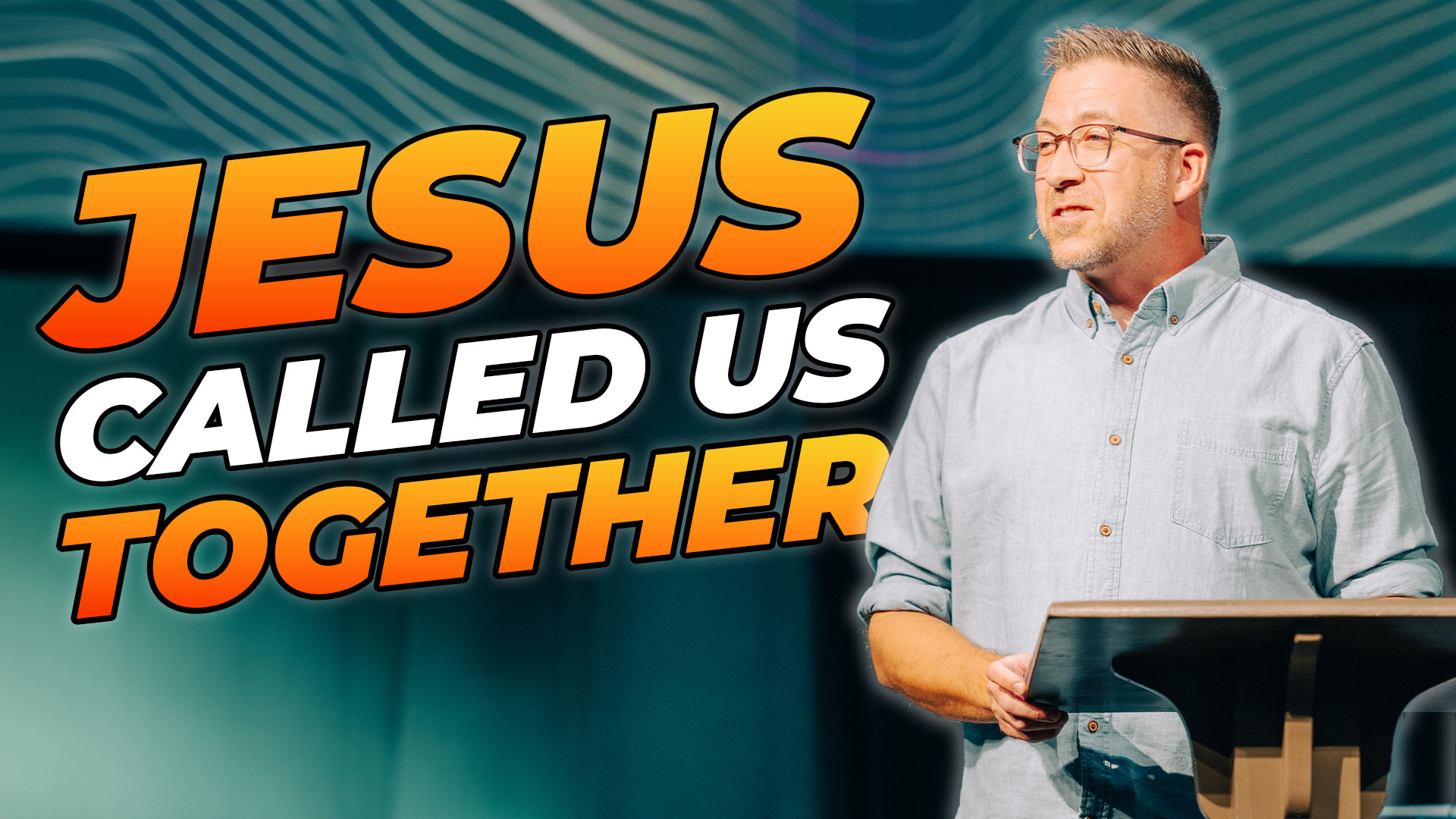Join us for a FREE Thanksgiving Dinner, Nov 27 CLICK HERE to learn more
Exploring Forgiveness - The Freedom of Letting Go
By Steve Huber
The Cost of Unforgiveness
What if I told you that there's something you could do? What if I told you that there's something you could do? Does it require a diet? No. Exotic medicines? No. Difficult to obtain supplements that you need to order online and store in your fridge. Not a gym membership. Not even a doctor's visit. What if I could tell you there's something you could do to lower your risk of heart attack, improve your sleep, the daily feeling of stress in your body, actually physically lower your cortisol level and also help with anxiety and depression. Would you want to know what it is?
This is actually how Pastor Josh Bundy introduced this topic to our group leaders. Research shows this thing you could do is have more forgiveness in your life. What you could do is choose to forgive, receive forgiveness, and also practice forgiveness.
Now the opposite is also true. Living with unforgiveness actually takes it. It's hard on your body. It raises your cortisol level, which is harder on your heart. It's bad for your blood pressure. It's bad for your immunity. It's bad for depression and anxiety. It drains you. It's bad for your soul. Unforgiveness is bad for your soul.
Maybe you're thinking, okay, so forgiveness is good. Forgiveness would be good for me. Doesn't mean it's easy, right? Forgiveness is not easy. The Bible, as we're going to see, actually teaches. It's the opposite of easy. It's costly. Forgiveness is hard. Forgiveness costs. Someone has to absorb. Absorb the cost. So how do we forgive? How in the world—doesn't it seem like we as a culture we're struggling to forgive right now?
Our Culture’s Struggle with Forgiveness
Our politics has degenerated into name calling, ridiculing, labeling. The psychological term is "othering", where it's not like, well, yeah, that's a fellow human being like me. That's a fellow American. That's a fellow community member. That's Joe, that's Bob, that's Susan who just happens to disagree. Political enemies are seen as enemies—bad for the world.
How do we forgive? Online culture seems to make this worse. Here's an irony. We're in a culture that in many ways is very disconnected from God. And as our culture becomes disconnected from God, here's the weird part: it seems like people—we, let's include ourselves—we're getting more and more moralistic.
And this is what I mean. Cancel culture says, look, you don't deserve, because of the mistakes you've made, you don't deserve to exist online anymore. Cancel culture means you're done. You've done something unforgiven, unforgivable. And we're going to use social media to remind you of your worst mistakes forever. That's rough. How would you like to just have your worst mistakes published permanently worldwide? Forever? That's what social media can do. That's what cancel culture does. Some things are unforgivable, and the right thing to do is to punish people forever.
Allan Jacobs is a writer and a thinker. I actually had him as a professor for a while at college. He happens to be a Christian and he's written, hey, maybe the great sin of our time—what's our deepest sin? What do you think he's going to say? You know, your mind could go anywhere. He says maybe the great moral crisis of our time is vindictiveness. Seeking to punish people, take revenge on people. Social media, he writes, serves as crack for moralists. There's no high like the high you get from punishing malefactors.
So our culture is struggling with forgiveness. Personally, we struggle with forgiveness. There's a new show on HBO right now called Task. It's set in Delco, so it's kind of fun. You listen to some Delco accents. Mark Ruffalo plays the main character who's a priest who's left the ministry. He's now an FBI agent. He's bitter. He's struggling with alcohol. He's struggling with a terrible personal loss and grief. One of the central questions of the show is: is it possible to get over being terribly wronged? Is it possible to move past it? He says at one point, “When I was a priest, I had a stock answer for that question. It's easy to talk about forgiveness when it's not your loss. As for forgiveness and mercy, I don't know. I have prayed for an answer and all I receive is silence.”
That's the question of the show. How can we forgive? Is Christianity just easy answers that don't work in the real world? It's easy to talk about forgiveness when it's not your loss. And the priest who's left the ministry, he's like, I don't know about mercy and forgiveness. I just don't know. Is there power from Jesus to forgive?
Forgiveness is hard. There's an expert in pastoral counseling, so he trains pastors. He's with the Lord now. But he spent his career training pastors how to counsel people through difficult problems. His name's Lofton Hudson, and he wrote how we can give forgiveness but then kind of take it back, which is not true forgiveness. This is how hard it is, right? We bury hatchets, but carefully tuck away the map case. We want to find them later. We put our resentments in cold storage, but we know where the switch is. We want to force them out. Let's get them back out. We take our grudges out to the lake to drown them—even the lake of prayer—and we end up giving them swimming lessons.
Jesus Teaches on Forgiveness - Matthew 18
Forgiveness is hard. What did Jesus say about forgiveness? Let's start there. Listen to God's Word in Matthew 18. Peter came up and said to him, “Lord, how often will my brother sin against me, and I forgive him? As many as seven times?” And Jesus said to him, “I do not say to you seven times, but seventy-seven times.”
Now pause for a second. Peter thinks he's going to get
an attaboy. Wow. Seven times. That's a lot of times. The Jewish religious leaders, you know what number they were teaching? Three. So there were religious leaders at the time saying, look, it's a really kind thing. You really owe someone three chances of forgiveness. Peter picks this biblical number seven. It's symbolic for completeness. And he probably thinks he's going to get: wow, that's incredible, Peter. You're really such a good student. Good job. And Jesus blows that out of the water. “I do not say to you seven times, but seventy-seven times.”
Some translations translate it seventy times seven times. It might be 490 times. But it doesn’t matter. What's Jesus saying? It's not about walking around with a clicker or a notebook keeping score. Jesus is symbolically saying forgiveness must be ongoing. He is calling his followers to an ongoing forgiveness.
Now we’re going to talk about what forgiveness is not. It doesn’t mean immediately trusting. It doesn’t mean there aren’t consequences. It doesn’t mean there isn’t justice. But Jesus calls us to forgive.
The Parable of the Unforgiving Servant
Jesus tells a story about a king settling accounts with his servants. One owes him 10,000 talents—an unpayable debt. A talent was the highest monetary measurement. Ten thousand was the highest number in Greek. It’s a cosmic, unimaginable debt. The servant begs for patience, but it’s hopeless. Then the king, out of pity, forgives him completely.
But that same servant goes out and finds someone who owes him 100 denarii—a significant debt, about 100 days’ wages. He refuses to forgive and has the man thrown into prison. The king hears of it, calls him wicked, and punishes him for not showing the same mercy.
Jesus ends with a warning: “So also my Heavenly Father will do to every one of you, if you do not forgive your brother from your heart.”
The Meaning of the Parable
The King is God: holy, powerful, with full authority to settle accounts.
The unpayable debt is our sin: every way we have failed to love and obey God.
The forgiveness is God’s mercy: canceling our debt, nailed to the cross through Jesus Christ.
The smaller debt is the wrongs done to us: real and significant, but small compared to what we’ve been forgiven.
Jesus is clear: forgiven people must forgive.
Withholding forgiveness while receiving God’s mercy is wicked. Forgiveness does not mean forgetting, ignoring, or pretending. It means releasing bitterness, revenge, and the desire to make others pay.
Receiving and Extending Forgiveness
Forgiveness is both a decision and a process. We are invited to:
- Receive God’s forgiveness for our overwhelming debt.
- Extend forgiveness to others, even when it is costly.
- Invite Jesus into the places where bitterness remains.
George Herbert once wrote: “He that cannot forgive breaks the bridge over which he himself must pass.” Forgiveness is the bridge we all need.
The Weight of Sin and the Wonder of the Cross
The unpayable debt represents all our sin—every thought, word, and deed where we’ve failed God and others. David wrote in Psalm 40:
For evils have encompassed me
beyond number;
my iniquities have overtaken me,
and I cannot see;
they are more than the hairs of my head;
my heart fails me.
Sometimes we feel the crushing weight of sin. Other times we ignore it. But God shows us our sin so that we may find forgiveness.
Paul wrote in Colossians 2: “God, having forgiven us all our trespasses, by canceling the record of debt that stood against us with its legal demands. This he set aside, nailing it to the cross.” Our record of debt—unpayable—was nailed to the cross. Jesus paid it in full.
When we see the greatness of our sin, we see the greatness of the cross. The bigger our view of sin, the bigger our view of Jesus’ sacrifice. Those who are forgiven much love much.
Forgiving Others
The debts against us are real. They are not nothing. People have deeply wronged us. Some have faced abandonment, betrayal, abuse, or attack. Jesus doesn’t say those are small. But compared to what we’ve been forgiven, they are smaller. Forgiveness means releasing the chokehold of bitterness. It means refusing to punish. It means saying, “I will not get back at them, even in my heart.”
The Warning and the Invitation
Jesus warns: if we do not forgive, we cannot expect forgiveness from God. Forgiveness is required. But forgiveness flows out of being forgiven. Forgiven people forgive.
So what do we do? We invite Jesus into the places where we are bitter and broken. Forgiveness is a decision and a process. God meets us in the hardest places with His grace. As Seth Haines wrote in Coming Clean, “God is involved with us in the most imprisoning bondage of our brokenness.”
A Call to Prayer and Freedom
Our life together depends on forgiveness. Marriages cannot last without it. Friendships cannot survive without it. Churches cannot thrive without it. Communities cannot flourish without it. Forgiveness is the bridge we must walk, and Jesus has made that bridge possible.
Father, we thank you for sending Jesus to pay our debt. Thank you, Jesus, that our sins are nailed to the cross. Lord, nail our unforgiveness and bitterness to the cross as well. Free us to forgive as you have forgiven us. Work in us by your Spirit so we may walk in love, peace, and joy. In Jesus’ name, Amen.



